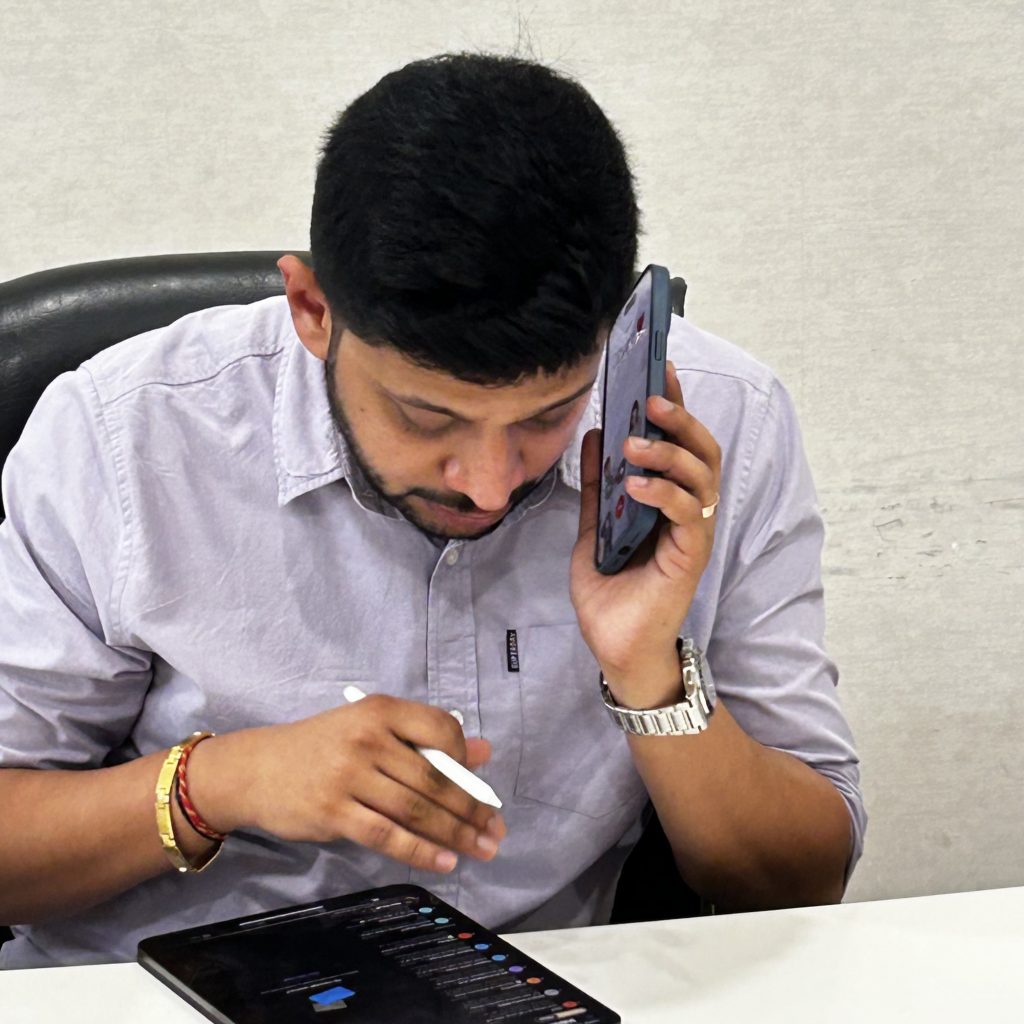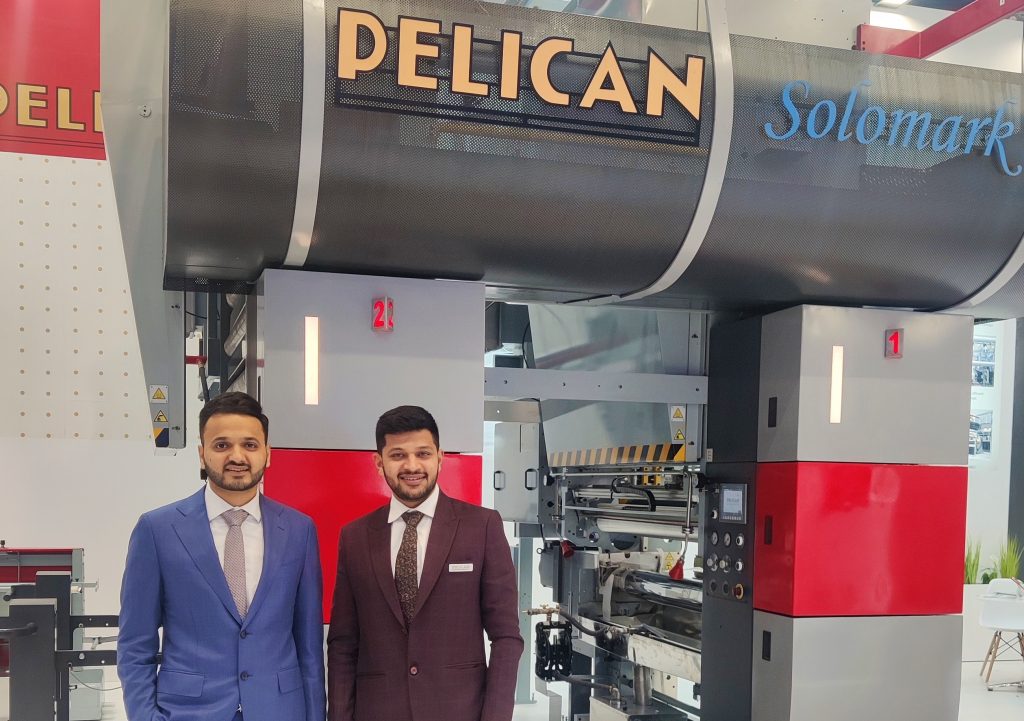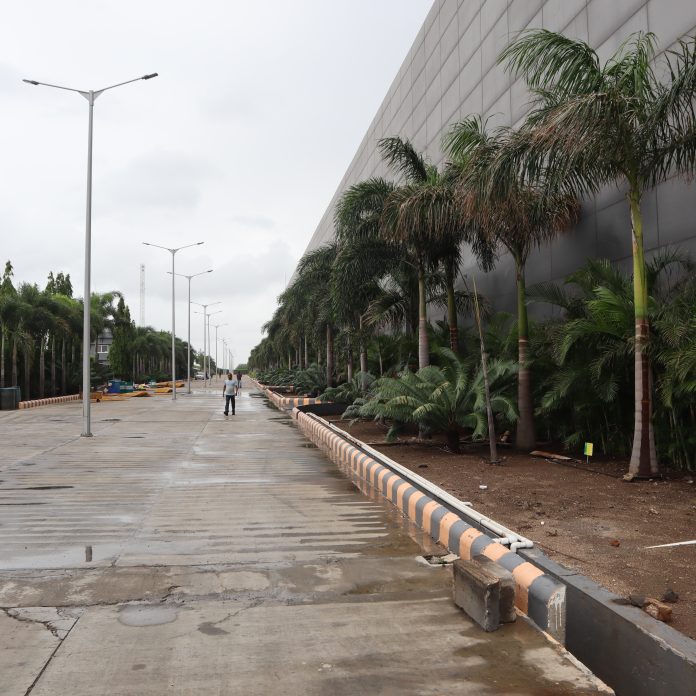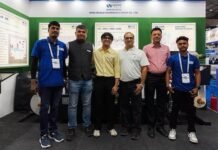Rajkot, which is approaching a population of two million, is one of the 10 fastest-growing cities in the world and together with its surrounding industrial estates, one of the leading 25 such urban agglomerations. Our window to this city is the modern incarnation of its engineering tradition from the days of textile machinery and diesel engine manufacture to a leadership position in heavy metal machines for flexible packaging, including Pelican and Rajoo Engineers. In recent years, the city has given rise to snack food processing industries such as Balaji Wafers and Gopal Foods, both extensive users of flexible packaging. Apart from the modern Balaji Multiflex packaging plant, flexible converters in the city include Sunraj and several others.
Our several visits to Rajkot over the past six years are a barometer of the growth of flexible packaging in India and the engineering industry’s growth and improvements in support of its capabilities. Rajoo Engineers has graduated to higher capacity extrusion blown film lines, and from its beginnings as a manufacturer of stack flexo presses in the past two decades, Pelican has emerged as a leading manufacturer of electronic line shaft gravure presses, solventless and extrusion laminators, and slitter rewinders.
As we saw at the recent drupa24 exhibition and in our last two visits to the new and expanded Pelican factory in Rajkot, we have witnessed the company’s ambition to advance the automation features of its machines and its assembly capacity, together with a new generation taking its place.
The founder Bharat Shah is still very much running the company, though he is keen for the next generation to rapidly give wings to the capacity expansion taking place. And the next generation with Yash Shrimankar and Vasu Shrimankar is taking on the challenge of quick growth.

Indian flexible packaging converters, who are now in the business of producing quality packaging for consumer products, including food, are compelled to comply with sustainability and waste management regulations. They cannot sacrifice productivity in the face of various global supply chain constraints. Converters are enthusiastic about partnering with local manufacturers that offer them the automation they need to run gravure presses at the speeds and accuracy that match the imported machines. Even leading global machinery manufacturers recognize the advantages of local production.
In recent years, there has been an escalation of productivity in gravure printing across India. Starting with the import of gravure presses rated at 500 and 600 meters a minute, gravure printing productivity has increased across the leading converters in the country with a mix of imported and Indian-manufactured presses. Converters across the industry are buying new presses with capabilities of 450 meters a minute, which are performing at nearly those speeds and even the older installed presses are now running above 250 metres a minute – all greatly helped by the improvements in the films, laminates, and inks that are needed.
Our visit to the Pelican factory shows the 24-acre campus has developed much further than in our previous visits several years ago. The machining and assembly halls are now separate and the assembly capacity has doubled with the company expecting breakthroughs in its visitor engagements at the recent drupa24 to lead to a substantial increase in exports. In addition, the company has acquired several large industrial plots for its exponential expansion plans in the pipeline.
Automation for lower wastage and lower conversion costs

Yash Shrimankar says that “Indian converters are now enthusiastic to purchase high-end gravure presses with automation features built-in. They no longer see automation as a frill or as an add-on. They realize that the presses cannot be run at high speeds without sophisticated controls for quick and precise makeready and maintaining quality. Key issues are lower wastage and lower conversion cost. Productivity has become the mantra.”
As Shrimankar showed at the 2023 Elite Conference on flexible films in Mumbai, sustainability is a concern for the company, not just to help its customers run sustainable laminates and inks at high speeds, but also for the manufacture of the gravure presses, laminators, and slitter rewinders at the Rajkot plant. Approximately 90% of the energy needs of the manufacturing plant are already met by renewables, including mainly solar and a couple of windmills, and there are plans to increase this capacity to meet the entire needs of the company.

At this year’s Elite Conference on flexible films and packaging to take place on 30 September and 1 October 2024, Yash and Vasu Shrimankar plan to address the urgency of climate change. When I speak to Shrimankar, he describes the unprecedented monsoon rains in Rajkot over the past three days. He says, “Apart from speaking about the progress of our machines in helping lower wastage and lower conversion cost at the Elite Conference, Vasu and I plan to speak about how we as individuals, companies, and industries can make an impact on the rapid climate change globally, which we are already experiencing in our regions.”











